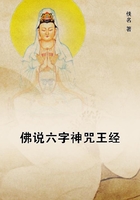Notable among them were the local officials, called jefes politicos, whose control of the police force enabled them to indulge in practices of intimidation and extortion which ultimately became unendurable.
Though symptoms of popular wrath against the Diaz regime, or diazpotism as the Mexicans termed it, were apparent as early as 1908, it was not until January, 1911, that the actual revolution came. It was headed by Francisco I. Madero, a member of a wealthy and distinguished family of landed proprietors in one of the northern States. What the revolutionists demanded in substance was the retirement of the President, Vice President, and Cabinet;a return to the principle of no reelection to the chief magistracy; a guarantee of fair elections at all times; the choice of capable, honest, and impartial judges, jefes politicos, and other officials; and, in particular, a series of agrarian and industrial reforms which would break up the great estates, create peasant proprietorships, and better the conditions of the working classes. Disposed at first to treat the insurrection lightly, Diaz soon found that he had underestimated its strength. Grants of some of the demands and promises of reform were met with a dogged insistence upon his own resignation. Then, as the rebellion spread to the southward, the masterful old man realized that his thirty-one years of rule were at an end. On the 25th of May, therefore, he gave up his power and sailed for Europe.
Madero was chosen President five months later, but the revolution soon passed beyond his control. He was a sincere idealist, if not something of a visionary, actuated by humane and kindly sentiments, but he lacked resoluteness and the art of managing men. He was too prolific, also, of promises which he must have known he could not keep. Yielding to family influence, he let his followers get out of hand. Ambitious chieftains and groups of Radicals blocked and thwarted him at every turn. When he could find no means of carrying out his program without wholesale confiscation and the disruption of business interests, he was accused of abandoning his duty. One officer after another deserted him and turned rebel. Brigandage and insurrection swept over the country and threatened to involve it in ugly complications with the United States and European powers. At length, in February, 1913, came the blow that put an end to all of Madero's efforts and aspirations. A military uprising in the city of Mexico made him prisoner, forced him to resign, and set up a provisional government under the dictatorship of Victoriano Huerta, one of his chief lieutenants. Two weeks later both Madero and the Vice President were assassinated while on their way supposedly to a place of safety.
Huerta was a rough soldier of Indian origin, possessed of unusual force of character and strength of will, ruthless, cunning, and in bearing alternately dignified and vulgar. A cientifico in political faith, he was disposed to restore the Diaz regime, so far as an application of shrewdness and force could make it possible. But from the outset he found an obstacle confronting him that he could not surmount. Though acknowledged by European countries and by many of the Hispanic republics, he could not win recognition from the United States, either as provisional President or as a candidate for regular election to the office.
Whether personally responsible for the murder of Madero or not, he was not regarded by the American Government as entitled to recognition, on the ground that he was not the choice of the Mexican people. In its refusal to recognize an administration set up merely by brute force, the United States was upheld by Argentina, Brazil, Chile, and Cuba. The elimination of Huerta became the chief feature for a while of its Mexican policy.
Meanwhile the followers of Madero and the pronounced Radicals had found a new northern leader in the person of Venustiano Carranza.
They called themselves Constitutionalists, as indicative of their purpose to reestablish the constitution and to choose a successor to Madero in a constitutional manner. What they really desired was those radical changes along social, industrial, and political lines, which Madero had championed in theory. They sought to introduce a species of socialistic regime that would provide the Mexicans with an opportunity for self-regeneration. While Diaz had believed in economic progress supported by the great landed proprietors, the moral influence of the Church, and the application of foreign capital, the Constitutionalists, personified in Carranza, were convinced that these agencies, if left free and undisturbed to work their will, would ruin Mexico.
Though not exactly antiforeign in their attitude, they wished to curb the power of the foreigner; they would accept his aid whenever desirable for the economic development of the country, but they would not submit to his virtual control of public affairs. In any case they would tolerate no interference by the United States. Compromise with the Huerta regime, therefore, was impossible. Huerta, the "strong man" of the Diaz type, must go.
On this point, at least, the Constitutionalists were in thorough agreement with the United States.
A variety of international complications ensued. Both Huertistas and Carranzistas perpetrated outrages on foreigners, which evoked sharp protests and threats from the United States and European powers. While careful not to recognize his opponents officially, the American Government resorted to all kinds of means to oust the dictator. An embargo was laid on the export of arms and munitions; all efforts to procure financial help from abroad were balked. The power of Huerta was waning perceptibly and that of the Constitutionalists was increasing when an incident that occurred in April, 1914, at Tampico brought matters to a climax.















